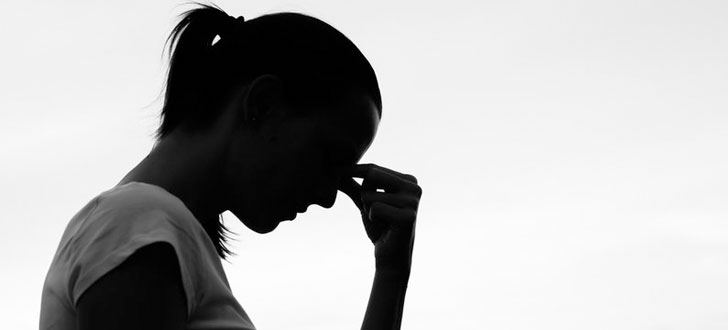
In improved words, wretchedness could be characterized as bitterness or melancholy that continues for unnecessarily long term as contrasted with typical and fundamentally debilitates the ordinary working of a single person.
Feeling of sadness, despondency, negativity and a general lack of importance in life, collectively with a sense of decreased expressive well-being. Most people experienced these sentiments occasionally, in many cases as a typical response to a particular incident. Additionally, it is natural to feel depressed when a close family member passes away, However if the depression occur without any evident cause, deepens and persists, it may be a symptom of any of a psychiatric illness. When a person’s behavior and physical state are also exaggerated, it then turns out to be a part of true depressive sickness.
The indications of depression vary with the severity of the disease. In an individual with peaceful depression, the main indications are anxiety and an uneven mood. Infrequently a individual has or has fits of crying that occurs for no obvious reason.
By virtue of a huge number of individuals being influenced by wretchedness around the world, it is a tremendous open well-being issue. It is particularly critical to diagnose it and treat it in time on the grounds that it influences the patient as well as his whole family and in addition his work.
Misery can influence individuals of all ages and foundations; females are twice as prone to experience the ill effects of it as contrasted with guys. The real issue with this condition is that it regularly introduces with sub-clinical side effects heading it to be under-diagnosed and consequently under-treated.
The condition has an inclination to compound as time advances and it can significantly influence the usefulness of a single person. In the most exceedingly bad situation, sorrow can prompt suicide which brings about loss of upwards of 850,000 lives consistently. A couple of decades prior, melancholy would be named:
- Endogenous: This sort is depicted as one in which there is no outer reason for the dejection; it could be of hereditary cause or may be idiopathic.
- Neurotic/ touchy: This sort has a clear outside component that has accelerated the condition. Normal triggers incorporate loss of a friend or family member, end of a relationship, demise of mate, a real set-back in life, and so forth.
At present, melancholy is extensively grouped into the accompanying sorts, the initial two being the most generally diagnosed ones :
- Major gloom: This altogether handicaps the sufferer and keeps him from working ordinarily. It meddles with an individual’s capability to delight in exercises which he once discovered pleasurable. Real sadness can get to be repetitive or interminable in nature.
- Chronic gloom (dysthymia): Longer term (typically more than 2 years) however less serious side effects describe this sort. It is less handicapping as contrasted with significant melancholy.
- Bipolar sadness: Also called manic-depressive sickness, patients experiencing this sort have scenes of amazing highs (like craziness) rotating with compelling lows (like gloom). This condition has a tendency to be cyclic in nature.
- Seasonal sadness (SAD or occasional full of feeling issue): Typically, the patient encounters scenes of misery amid the winter months (when there is less characteristic daylight) and this improves with the onset of spring/ summer.
- Psychotic sadness: When discouragement is joined by the patient making tracks in an opposite direction from reality and encountering hallucinations/ mind flights, its called maniacal despondency.
- Postpartum sadness: The onset of significant misery inside a month of conveying an infant is called post pregnancy anxiety.





